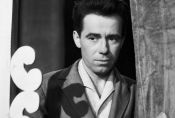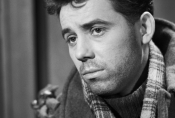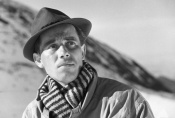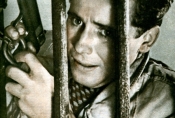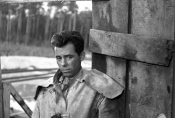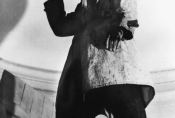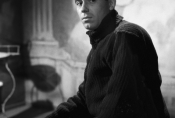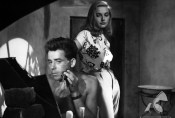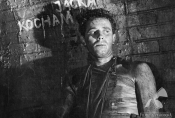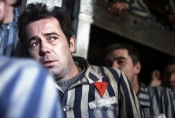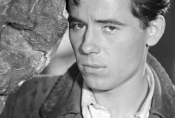Tadeusz Janczar
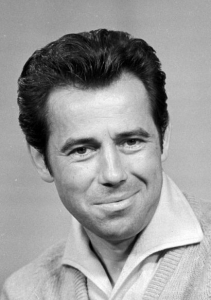
His roles Piątka z ulicy Barskiej/ Five From Barska Street (1953) by Aleksander Ford, Pokolenie/Generation (1954) and Kanał/Canal (1956) by Andrzej Wajda, and Pożegnania/Farewells (1958) by Wojciech Jerzy Has made Janczar one of the first film stars of Polish post-war cinema, several years before Zbigniew Cybulski. Besides, Wajda had originally wanted to cast him as Maciek Chełmicki (the role ultimately went to Cybulski) but Janusz Morgenstern, assistant director on the set of Popiół i diament/Ashes and Diamonds (1958) convinced him otherwise.
He was born on April 25, 1926 in Warsaw, and died on October 31, 1997 in Warsaw. His real name was Tadeusz Musiał. He began his acting career in 1944, performing for soldiers fighting in the war. Graduate of Janusz Strachocki’s School of Drama (1947). A year later, he passed his extramural acting exam at the National Higher School of Theatre in Łódź. After the war, he worked at the Stefan Jaracz Theatre in Olsztyn (1947-1948) as well as several theatres in Warsaw.
He first appeared on screen in Załoga [The crew] (1951) by Jan Fethke. Two years later, Aleksander Ford cast him in the lead role – as Kazek Spokorny – in his Piątka z ulicy Barskiej/ Five From Barska Street (1953), based on the famous novel by Kazimierz Koźniewski. The role brought him great popularity (and the State Prize). He established his position with his subsequent roles – Jaś Krone in Pokolenie/Generation (1954) and cadet “Korab” in Kanał/Canal (1956) by Andrzej Wajda. He played the main role of a Tatra courier in Con bravura, the third part of Munk’s Eroica (1957), which was not included in the final cut of the film. He gave another great performance as a young man rebelling against his bourgeois family, who leaves his home to stay in a hotel, where he meets a girl, in the poetic film Pożegnania/Farewells (1958) by Wojciech Jerzy Has, based on Stanisław Dygat’s short novel. Also memorable were his roles in Znaki na drodze [Signs on the road] (1969) by Andrzej Jerzy Piotrowski, w obronie własnej [In self-defense] (1981) by Zbigniew Kamiński, and above all in Krajobraz po bitwie/Landscape After Battle (1970) by Andrzej Wajda, inspired by the prose and the fate of Tadeusz Borowski.
He appeared in various TV series and radio dramas, creating many memorable characters, such as Dr. Sergiusz Kazanowicz in the TV series Dom [The house] (1980-1996) by Jan Łomnicki, or Stach in the radio soap opera Matysiakowie [The Matysiaks] (from 1959). In 2007, Piotr Śmiałowski published a book about the actor, “Tadeusz Janczar – zawód aktor” [Tadeusz Janczar – professional actor].
Jerzy Armata
Selected filmography
-
1956
THE CANAL
reż. Andrzej Wajda
-
1957
HEROISM (EROICA)
reż. Andrzej Munk
-
1958
FAREWELLS
reż. Wojciech Jerzy Has
-
1960
BAD LUCK
reż. Andrzej Munk
